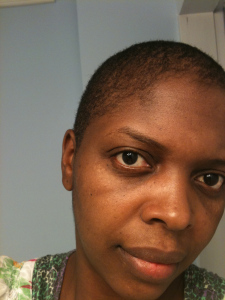
“The old is always new again when it comes to black women’s filmmaking. So much of our stuff gets lost or “lost” due to the way unequal power structures affect our ability to produce, preserve, and protect the things we make.”– Terri Francis, writer and film scholar
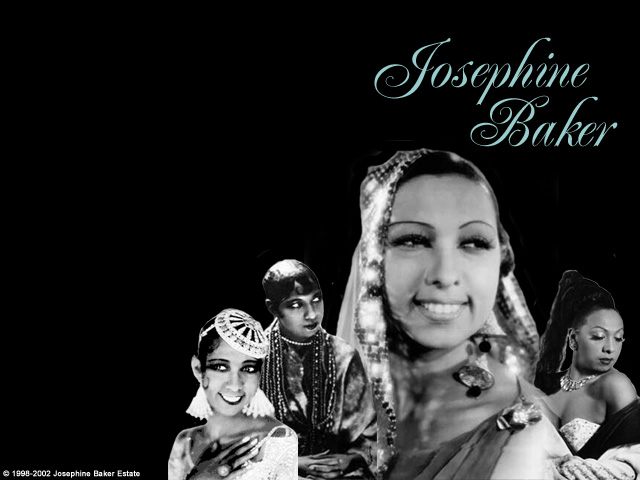
Though she is hard to describe succinctly, Josephine Baker contributed to American, French and worldwide culture in the 20th century as a dancer, actress, singer, philanthropist, WWII French intelligence correspondent and civil rights activist. People who are unfamiliar with her now have the pleasure of quite an introduction here.
I am so pleased to present this Q & A with Dr. Terri Francis, Associate Professor in the Department of Communication and Culture at Indiana University-Bloomington. She is equally as challenging to succinctly describe. Terri Francis was a PhD candidate in University of Chicago’s English Department when I was an English undergraduate, and among my first introductions to the breadth and possibility of Humanities practice though her blending of multiple artistic languages such as film and art into an English discipline.
Since then, Dr. Francis has continued her work, writing and teaching at University of Pennsylvania and Yale. In 2010 she organized and led The Jamaica Film Workshop in Boston Bay, Jamaica, an event marking the inaugural meeting of the Afrosurrealist Film Society. She has recently been a guest presenter at NYU’s Black Portraiture Series held in Italy in 2015. She has contributed to multiple scholarly journals and anthologies, and also speaks frequently throughout the country.
She is interested in what Josephine Baker created, particularly from an African-American viewpoint (given Baker’s dual citizenship with France), as a celebrity abroad who traveled back to America through U.S. newspapers and literary circles whose vast archives Francis mines for her forthcoming book: Josephine Baker’s Animated Burlesque: Deconstructing Dialectics. Here Dr. Francis talks not only of “the muchness” of Josephine Baker but her overall scholarship in Black women’s cinematic representations, Black women’s films, Black film audiences and her theories of burlesque.
Your far-reaching film and cinema studies scholarship concentrates in both African American and Caribbean cinema, black feminist film theory, Black spectatorship, politics of performance, popular culture and now burlesque theory. Why Josephine Baker? Do you recall the material or moment that called you to center on her out of all the subjects you could have chosen? Was it something you saw or read? Did a friend or colleague influence you in her direction? What?
Actually Josephine Baker required my expertise in those areas that you mentioned! My approach in the book is an amalgamation of archival research, close reading, performance theory, and historical context because Josephine Baker is a great trickster! Pat answers don’t work well.To account for her type of multi-valent agency, glamour, her superhumanness, and her risks, inspired me to create this sort of multidisciplinary prismatic formation.
For me, burlesque always conjures this image of being somewhere with female entertainers who use sexual moves and dress in an act, and I’ve seen males in drag in burlesque shows. It’s fun and it can be funny, not to be taken seriously. Do you think that is the conventional view of burlesque among the general society? What more is behind burlesque or different about it in your theories you introduce?
Burlesque is about exaggeration, parody, and comedy. It can be bawdy. It can be tawdry. We know it now as just strip tease, especially body-positive or sexy-positive dance, but it used to mean a wider range of acts in a variety show.
I’m fascinated by the idea of burlesque. I like it as a metaphor. I like it as a strategy. I like the muchness of Baker’s performance – the lights, the glamour, and the silliness. I like that burlesque is not at all earnest. It is absolutely artificial, but it can be intensely meaningful.
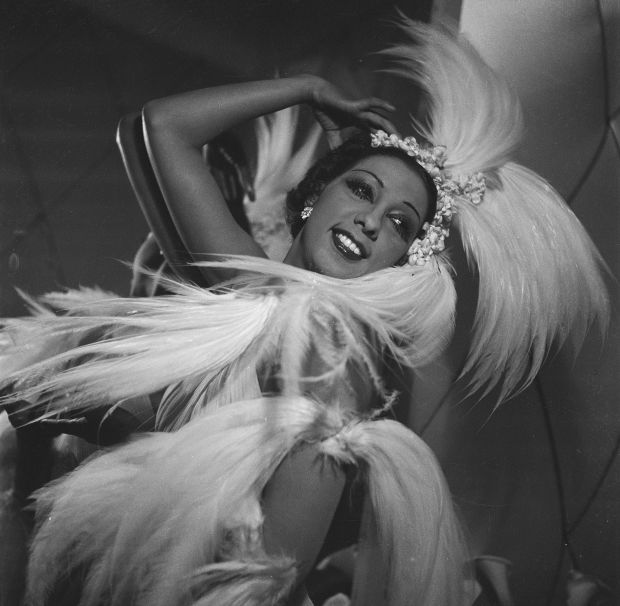
You have written of Beyoncé as a famous modern performer who channels Josephine for stage acts and even film roles in an essay for Scholar & Feminist Online . The actress Lynn Whitfield played her in The Josephine Baker Story (1991) for HBO. I forgot about Josephine’s brief appearance in the film Frida (2002), which you point out in an essay. More films than I realized also “sample” Baker like a passing novelty, almost just as the films she appeared in herself during her life. Is this good for her and us? How can more people get to know her beyond these slimmed portrayals?
I don’t think that Baker is being sampled like a passing novelty at all. I think that people see her as a muse, as a beacon of creativity and self-actualization. The artist in all of us loves her self-invention, her playfulness, her worldliness, her elegant suits. In the [1983] movie Sugar Cane Alley [also titled Black Shack Alley] there is an intriguing and sort of tragic black woman character, who needs a movie of her own, called simply “La Mere de Leopold” or Leopold’s mother. In one scene Leopold’s mother plays a song from a Josephine Baker record—for her the sound of Baker’s voice, the fact that she is on a record that came all the way from Paris, opens a portal to another universe, to another version of her self. The yearning, the pleasure, the imagining that I can see on her face, is about personal freedom—that’s what Baker is all about in these citations. They’re paying homage.
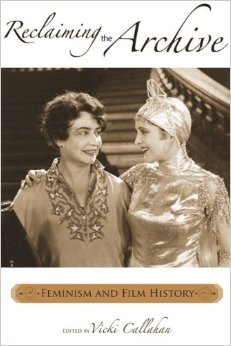 Your chapter “She Will Never Look” is contained in the feminist and film history compilation Reclaiming the Archive (Wayne State University Press; 2010; ISBN: 0814333001). For it you found articles as far back as the 1960s revealing the double discrimination of race and sex black actresses endured, and how scary that is for how film audiences ultimately see black women. Black women’s challenges in film continue, including behind the camera. At Chicago’s Black Cinema House, you presented a screening and talk with Ghanaian-American filmmaker Akosua Adoma Owusu, a model of new directions for black women in film. Who are other models we should know about?
Your chapter “She Will Never Look” is contained in the feminist and film history compilation Reclaiming the Archive (Wayne State University Press; 2010; ISBN: 0814333001). For it you found articles as far back as the 1960s revealing the double discrimination of race and sex black actresses endured, and how scary that is for how film audiences ultimately see black women. Black women’s challenges in film continue, including behind the camera. At Chicago’s Black Cinema House, you presented a screening and talk with Ghanaian-American filmmaker Akosua Adoma Owusu, a model of new directions for black women in film. Who are other models we should know about?
I love Stefani Saintonge’s film Seventh Grade (2014) about a little girl coming of age. My students really enjoy Ava DuVernay’s work, especially The Door (2013). So much cool web stuff like Black & Sexy TV and you have independent, documentary, bio pics, fashion commercials, animation, comedy, podcasts – all great models of black women’s media making today.
The old is always new again when it comes to black women’s filmmaking. So much of our stuff gets lost or “lost” due to the way unequal power structures affect our ability to produce, preserve, and protect the things we make.
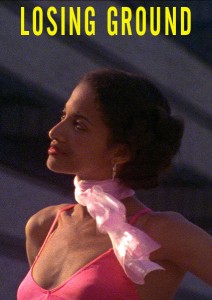
Kathleen Collins’s Losing Ground was released in 1982, lost for decades and is now back out on Blu Ray and DVD from Milestone Films. If [Professor] Jackie Stewart hadn’t taught the film to me and I hadn’t met the filmmaker’s daughter, Nina, who was thankfully willing to restore the film, I’m not sure where Losing Ground would be! I mean – this is a MOVIE THAT STARS A BLACK WOMAN PROFESSOR. Yes, I am shouting that. We need this film. We need to see ourselves us as women in serious and delicious ways.
Right after another #OscarsSoWhite year, we have a Latina actress in blackface to lead a biopic of another Black female performer of Josephine’s proportions: Nina Simone. Is this a form of ‘burlesque’? How should we view this casting? What does it mean for how the past toil and labor of women like Josephine Baker, Ruby Dee and Nina Simone may be (mis)represented for today’s general audiences?
Haha well… too soon to say. Burlesque is tricky and volatile.
What’s next for you? What are you working on now, where are you speaking or presenting next, and what projects do you have coming up for us to look for?
I’ve fallen in love with myself through my new project on Spike Lee,[painter] Robert Colescott, and the Afrosurreal Global South. It’s all about something I’m calling Spike’s vernacular sublime. I want to do something on mischievous readings of films with minor black women characters.
The next book brings together Caribbean and African-American film histories though the ways experimental filmmakers rework the conventions of educational and ethnographic films. Doesn’t have a title yet. Mis-Education something? Deconstructing Instruction?
Dr. Terri Francis will be in Chicago this Friday night April 1 at 7PM for a screening and conversation with Kevin Jerome Everson at Black Cinema House! For those who are not in Chicago, you may hear Dr. Francis speak by visiting Indiana University’s panel series The Case of the Black Movie Circuit. To keep up with her work on Josephine Baker, burlesque theory and more, visit her blog Terri Francis and follow her on Twitter @TerriFrancisPhD.
To learn and experience more of Josephine Baker, please visit her Official Website operated by her estate representation CMG Worldwide.
Thanks Kalisha, Insightful as ever. In particular, my daughter is set to study anthropology and this opens up some great thought avenues for her.
LikeLike
Thank you Jonathan! I am so happy to hear your daughter is studying anthropology, like my alma mater U of C’s alum Katherine Dunham, and that all this information will encourage her- especially on Josephine Baker, who was so big in France, London, U.S. and Africa. I also have several friends who were anthropology majors, one teaching with a PhD. And our great African-American novelist Zora Neale Hurston was an anthroplogist: writing, films, plays, literary scholarship and more. I wish so much success and future accomplishments to your daughter! Blessings and love, Kalisha
LikeLike